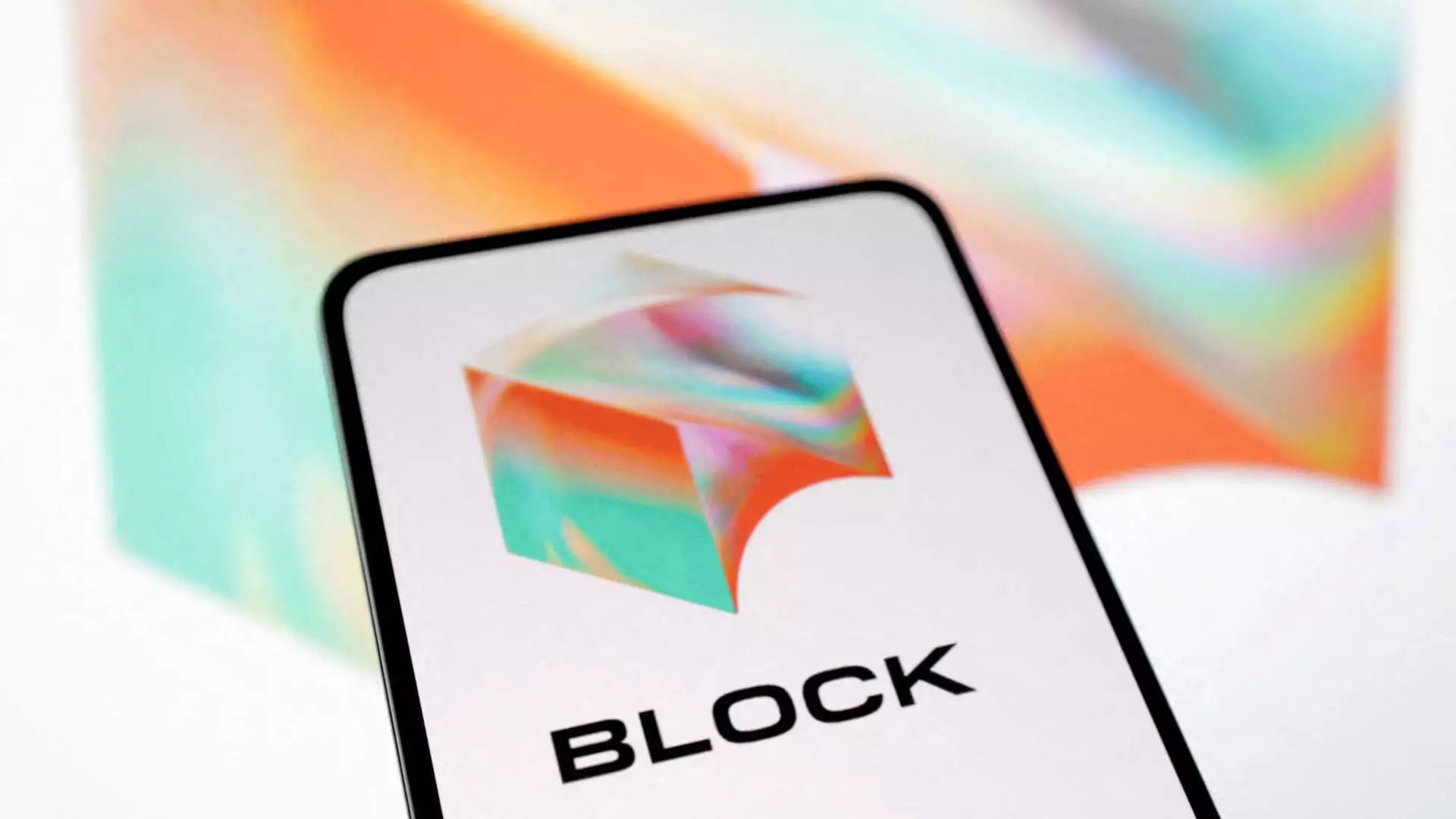In a landscape filled with unpredictable economic fluctuations, financial performance serves as a crucial touchstone for companies to remain competitive. Block, the fintech company formerly known as Square, reported its third-quarter results recently, revealing insights that encourage a deeper analysis beyond the immediate revenue metrics. While the company’s revenue figures fell short of Wall Street projections, its strategic focus on profitability and future growth initiatives indicates a robust underlying strength that could position Block favorably in the months to come.
Block reported third-quarter revenues of $5.98 billion, which did not meet the consensus estimate of $6.24 billion. The initial market reaction was predictable; after-hours trading saw a drop in share prices. However, this decline was quickly tempered by a renewed investor focus on profitability metrics. The adjusted earnings per share came in at 88 cents, slightly exceeding expectations of 87 cents, demonstrating the ability of Block to control costs while driving profits.
This juxtaposition of revenue and profit highlights an essential tenet of modern investment philosophy: profitability metrics can often hold more weight than top-line revenues. In an age where many organizations prioritize growth at any cost, Block’s ability to generate a gross profit of $2.25 billion—a significant 19% boost from the previous year—underscores the effectiveness of its operational strategies. It reminds investors that a solid gross profit base can pave the way for sustainable growth, even when revenue may not soar as anticipated.
A key component contributing to Block’s profitability is its well-established Cash App platform. This service not only provides a significant revenue stream but has also demonstrated impressive growth metrics. The Cash App’s gross profit surged 21% year-over-year, reaching $1.31 billion, reflecting an increasing user base and higher transaction volumes. The success of Cash App is critical as it continues to attract over 24 million monthly active users, marking an 11% rise from the previous year.
The company’s branding strategy also pushes Cash App Cards as a more attractive alternative to traditional credit cards, particularly through its integration of Afterpay’s services. By launching Afterpay directly within the Cash App, Block aims to capture a segment of users who are increasingly inclined towards buy now, pay later (BNPL) solutions. This move suggests a bold step forward in redefining user experiences in the fintech space, potentially transforming Cash App into a multifaceted financial ecosystem.
Block’s current trajectory is heavily intertwined with its evolving lending products. After acquiring the Australian BNPL firm Afterpay for a staggering $29 billion in 2021, the company has been keen to capitalize on innovative lending strategies. CEO Jack Dorsey’s commitment to integrating artificial intelligence into these products signals a forward-thinking approach aimed at enhancing user experiences while managing risk effectively.
The current loss rates on Block’s lending products remain impressively low—at 1% for buy now, pay later services, 3% for Cash App borrow, and 4% for Square loans. This disciplined approach to underwriting decision-making could ensure long-term growth and profitability, positioning Block as a leader in the fintech sector. Analysts see lending as central to Cash App’s monetization strategies, and this aligns with the broader market trend of embedding financial services within essential consumer apps.
To streamline operations and enhance financial performance, Block has taken significant steps to adjust its investment portfolio. Notably, the company has chosen to scale back its involvement with Tidal, Jay-Z’s music streaming platform, and has completely wound down its Bitcoin-focused initiative, TBD. The decision to lay off employees this year may raise eyebrows, but it also underscores a pragmatic approach in an unpredictable economic environment.
Despite the evolving financial landscape, Block continues to hold over 8,300 bitcoins on its balance sheet, valued at approximately $630 million. This strategic holding aligns with Dorsey’s vision to democratize access to bitcoin via Cash App, underscoring an ongoing commitment to cryptocurrency while also hinting at long-term value accumulation.
While Block’s recent earnings figures might invoke initial concern due to missed revenue targets, the deeper narrative reveals a company focused on profitability, innovative lending products, and strategic realignment for sustainable growth. As financial structures evolve, Block seems poised to navigate future challenges by leveraging its strengths and embracing the changing demands of consumers in the fintech space.

